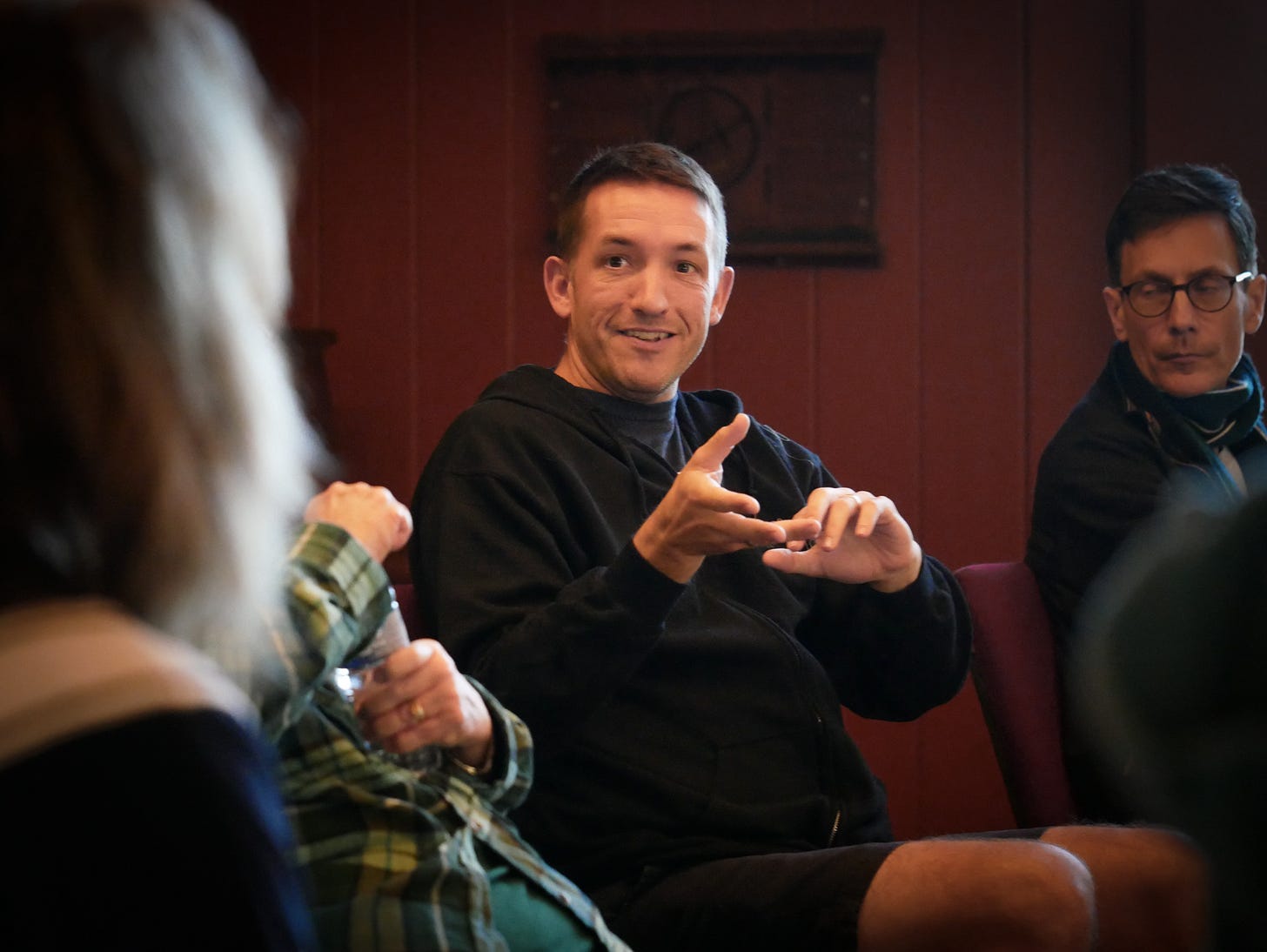Many of us want to live in just, humble, and attuned ways. We desire lives characterized by contemplation and deeply rooted in God (as we understand God). In the Information Age, we spend a lot of time searching for wisdom to bridge the gap between this desire for contemplation and the realization of a contemplative life. When we search for wisdom and only find more information, a sense of loneliness and disempowerment often follows. It seems that everyone is talking about living a contemplative life, but what does that mean and how do we do it?
Contemporary and ancient Christian mystics remind us that living contemplatively is not something that is achieved but rather received. Thomas Merton said, “True contemplation is not a psychological trick but a theological grace. It can come to us only as a gift, and not as a result of our own clever use of spiritual techniques.” In The Steps of Humility and Pride, Bernard of Clairvaux outlines several fundamental ways to prepare for the gift of contemplation. These include regard for creation, ongoing introspection, reflection on the Incarnation, mutual accountability, and an essential embrace of hope. Saint Bernard offers no ways of achieving what is sometimes called a “state of contemplation.” He offers only ways to prepare for the gift of contemplation amid the challenges and complexities of life.
If we accept the ancient mystical wisdom that contemplation is a gift; our focus is not on how to achieve it—but how to receive it. This frees us from any sense of striving, any concern about succeeding, any pride or shame regarding our success or failure in contemplative living. Contemplation is not produced, deserved, or earned by perfection of contemplative practice. Rather, a contemplative life is one focused on cultivating receptivity to divine grace. We can all do that.
This is what we read between the lines of the oft-quoted mystics. They were like us. They struggled to make sense of themselves and their world. They were misfits who drew outside the lines. In their vulnerability, they discovered relationships, exercises, and commitments that allowed them to receive profound gifts including the mysterious ability to see and hear things that were hidden from their contemporaries.
The lives of ancient mystics in the Christian tradition and many others inspire us to discover our own ways of being radically receptive to God’s grace today. In the Community of the Incarnation (the New Monastic community that runs the Center for Spiritual Imagination), we relate to people like John Cassian, St. Benedict, St. Therese of Lisieux, and St. Francis of Assisi — not because they provide privileged information about contemplation we can only dream about. But rather because they shared the struggle to consent to the activity of God in their lives in their time. They are like us; human beings seeking to live justly, humbly and open to divine wisdom.
Their lives reveal much more than the content of their teachings. Therefore, our community does not study their writings as we would study a textbook. Instead, we embrace their way of life in a community of accountability and mutual support. Together, we practice the rhythms of prayer and reflection to which they were committed, the openness to ongoing conversion of life which they cultivated, and the connections between ecology and justice which they exposed. This is where the wisdom of their witness really resides. Their lives demonstrate the diversity of ways we may prepare to receive the gift of contemplation today.
The Very Reverend Dr. Michael T. Sniffen is the Dean of the Cathedral of the Incarnation and the Mercer School of Theology in Garden City, New York. He is a founding member of the Racial Justice Advisory Council of the Brooklyn Community Foundation and the co-founder of the Center for Spiritual Imagination.
This article was originally published in We Conspire, a series from the Center for Action and Contemplation featuring wisdom and stories from the growing Christian contemplative movement. Sign up for the monthly email series and receive a free invitation to practice each month.





